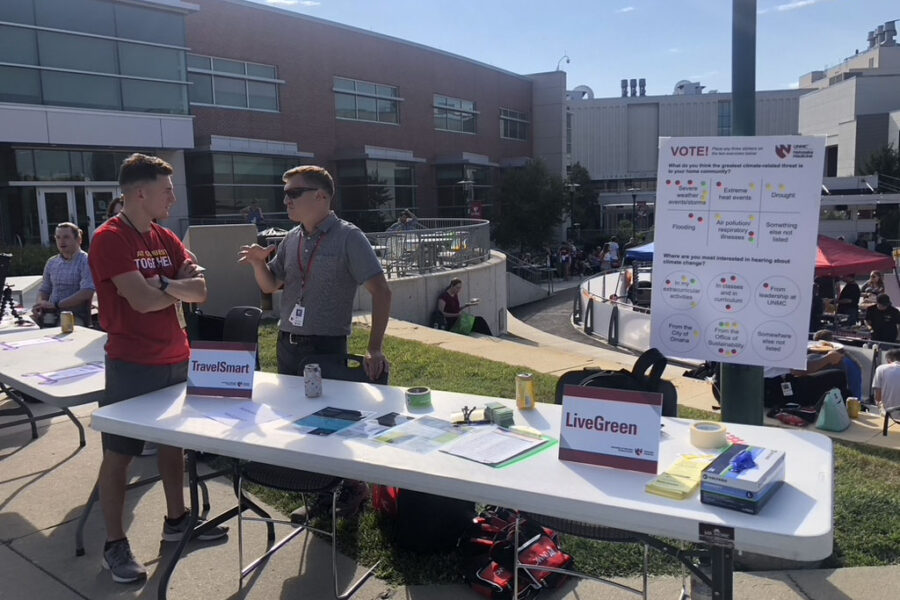The #WeAreUNMC back-to-school BBQ took place Aug. 24, welcoming students and staff back to campus. Around 800 people attended to play games, socialize, eat food and listen to music.
The goal was to make this a zero-waste event, meaning at least 90% of all the waste generated in preparation and during the event was diverted from the landfill, either by being composted or recycled.
This year, the diversion rate was 65% — below the zero-waste threshold. Below are the quantities sent to each end destination:
- Compost: 76.8 pounds
- Recycling: 27.6 pounds
- Cardboard: 31.8 pounds
- Hefty EnergyBag (Soft Plastics): 15.5 pounds
- Landfill: 82.1 pounds
Of a total of 234 pounds of waste, nearly 152 pounds were diverted, which comes to a 65% diversion rate.
Tablecloths and aluminum pans with food residue that could not be recycled contributed heavily to the landfill bin. This year, Sodexo purchased compostable wax sandwich wraps that helped to avoid throwing away previously used foil wraps. Plates, utensils, food, leftover liquids and any wet cardboard were composted as well. Water bottles, aluminum cans and cardboard were recycled.
LiveGreen ambassadors volunteered at each waste station and helped students and staff sort their waste into the appropriate bin, raising awareness and educating the attendees on waste management.
A special thanks to the following LiveGreen ambassadors for volunteering at waste stations and weighing waste: Anita Soto, Meghan Moore, Julie Sommer, Janet Wulf, Victoria Smith and Michelle Schneider. Thanks also to UNMC staff who helped plan and clean up the event afterwards, Sodexo for catering the event (and including vegetarian options) and Hillside Solutions for providing the compost bins.
Coordinating events to be zero waste helps the med center reach its goal of creating net zero waste by 2030. For waste information at future events, check out the zero waste event toolkit.
At the event, UNMC Sustainability Manager Jerrod Bley also talked with attendees about their concerns related to the climate crisis. Attendees participated in a sticker voting activity in which they named severe weather events/storms, air pollution/respiratory illness and extreme heat events as the climate impacts they perceive as the greatest threat to the community.
